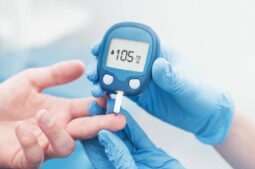
The incidence of testicular cancer is continuously increasing across most of Europe. A study by the International Agency for Research on Cancer (IARC) estimates that one in three cases of this disease occurs in European countries.
This cancer has a high survival rate. However, it impacts significantly male fertility, primarily affecting men aged 20 to 34. IVI presented an innovative study on the effects of chemotherapy in cases of testicular cancer at the 40th edition of ESHRE.
Effects of Chemotherapy on Sperm DNA
Four years after cancer treatment, sperm usually regain their pre-treatment characteristics. While this is already known, there has been little information to date about the effect of these therapies on the sperm epigenome. The study “Sperm DNA methylome changes in testicular cancer patients following chemotherapy treatment,” presented by IVI at the ESHRE Congress, reveals important new findings on this issue.
“We knew that cancer treatments in general and chemotherapy, in particular, could cause damage to sperm DNA integrity and aneuploidy. However, this damage was repaired after a few years. With this new study, we have seen that the epigenetics of sperm also change after overcoming testicular cancer. But these modifications persist even four years later”. This is how Dr. Marga Esbert, biologist and research coordinator at IVI Barcelona, explains it.
This means that the chemical compounds that bind to DNA (genome) have the ability to modify genes. They activate or silence their expression.
Conclusions from frozen samples
IVI conducted the most extensive study to date on testicular cancer survivors. Samples taken before cancer treatment and those taken after recovery were analyzed. In both cases, these samples were frozen, as the cryopreservation process can alter sperm epigenetics.
As Dr. Esbert explains. “After isolating sperm DNA, the functional enrichment analysis of the affected genes identified 65 differentially methylated regions. Specifically, the study revealed that the most affected biological processes were the regulation of macromolecule biosynthetic processes, hormone receptor binding, and signaling pathways that regulate stem cell pluripotency and cancer pathways”.
Becoming a father after testicular cancer
One of the main concerns for men affected by testicular cancer is whether they will be able to father children after overcoming the disease. This is particularly relevant because this is the most common cancer in young men, during peak reproductive years. The treatments used to combat this type of cancer can harm male fertility.
In the case of chemotherapy, depending on the type of agent used and the dose, the effects can be temporary or permanent. Testicular surgery reduces the chances of conception as it involves removing the testicle that harbors the tumor.
Therefore, it is advisable to coordinate cancer treatment with a fertility specialist to ensure that seminal genetic information remains intact after chemotherapy. “This step is crucial, as the age range for this type of cancer nearly coincides with peak fertility years, from 20 to 34 years old. Informing the patient at the oncology consultation at the time of diagnosis is key to preserving intact genetic material throughout the prescribed cancer treatment process”, concludes the doctor.
Without doubt, male fertility preservation is an invaluable tool for cancer patients who want to become fathers. In coordination with the specialist, a prior fertility assessment is performed. One or more samples are then vitrified. This simple procedure allows future fatherhood options to be preserved. Moreover, the samples can remain frozen for as long as necessary until the oncologist determines the patient’s recovery.
IVI helps you have a child
IVI participated in the 40th Congress of the European Society of Human Reproduction and Embryology (ESHRE). Once again, we were the company with the highest number of studies presented. This confirms that research is one of our pillars, always striving for the best results for our patients.
At IVI, we are also experts in male infertility, regardless of its origin. We conduct a fertility assessment for both partners and define a personalized protocol to achieve the dream of having a child. Contact our international team, and we will study your case.





Comments are closed here.